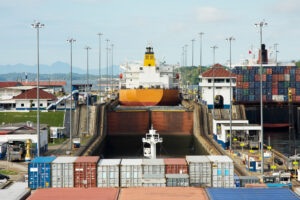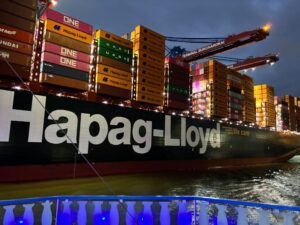German trade union Ver.di decided to increase pressure on the terminal employers’ association during the current third round of negotiations.
Talks were ongoing with the Central Association of German Seaport Operators (ZDS) for significantly better wages, but the union decided a strike day in various ports as Ver.di wants to increase the pressure on the employers to present a negotiable offer in the third round of negotiations.
Danish major Maersk issued an advisory to customers warning that “once terminals resume operations on 18 June, there is a possibility of congestion for delivery and pick up of containers from the terminal, and customers are asked to plan their inland haulage accordingly.”
The large container carrier is saying that the ongoing collective labour agreement discussions between terminals and labour unions in Bremerhaven and Hamburg, have led to strike action in both ports.
Strike actions have started on 17 June at 06:00 in Bremerhaven and 07:00 in Hamburg and will last for 24 hours, Maersk said in its advisory.
Maersk said it would be reviewing vessel schedules as there could be an impact on vessel departures. They said they would consider diversions or move count restrictions in order to minimise the impact on onwards vessel schedules.
“Employees need a significant increase in their wages in order to be able to pay for the increased cost of living. With their insufficient offer, the employers have now provoked strikes,” the union said.
Verdi warned that it remains to be seen whether there will be another warning strike if the Central Association of German Seaport Operators (ZDS) does not submit an offer in this round of negotiations.
In particular, the lower wage groups must receive significantly more income, and the inflation of recent years has hit them particularly hard, emphasizes the union.
It was on schedule the next round of negotiations to take place in Hamburg on June 17 and June 18.
Shippers and carriers are watching the situation closely as the industry is already concerned over the potential for congestion as volumes increase and ships are taking longer due to the diversions around Africa.



